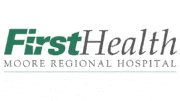By JONATHAN BYM
Staff Writer
When an individual goes through a drug overdose, the response to get the potentially life-saving drug in their system can take valuable minutes that might not be soon enough to save a life.
Now, harm reduction kits provided by the Sandhills Opioid Response Consortium are available for families of individuals who suffer from opioid abuse substance use disorder.
The kits include the overdose treatment drug Narcan, also called naloxone, which can save that valuable time in the event of an overdose.
“One of the overarching goals when working in the opioid abuse disorder and substance use disorder area is harm reduction,” said Roxanne Elliott, project director for FirstHealth Community Health Services. “That is what Narcan is considered, a harm reduction strategy.”
FirstHealth Community Health Services includes the Sandhills Opioid Response Consortium, which has representatives from Moore, Montgomery, Lee, Richmond and Hoke counties. It receives funding from the Federal Office of Rural Health Policy. The consortium was given a $600,000 grant in 2018 that now enters its third year of implementation to include harm reduction kits.
The kits include two doses of nasal Narcan, which is given like a nasal spray in the event of an overdose. Further instruction in the kits include information on the signs and symptoms of an overdose and a phone number for a rapid response team. The kits also provide information on ways to contact peer support specialist programs with the consortium for those suffering with drug abuse.
“When someone has revived them, hopefully they may be contemplating if that is their last overdose or not, and whether they want to seek treatment and recovery resources,” Elliott said. “When people overdose, we have the opportunity to have a discussion with them to see where they are on the continuum of wanting to reach out for help.”
Narcan is used by many first responders at the scene of an overdose. The Moore County Sheriff’s Office has deputies trained and equipped to administer the drug, and Sheriff Ronnie Fields sees the value in this being in the hands of families with those in danger of an overdose.
“I don’t want to say I’m supporting enabling, but I’m always supportive of anything that’s going to save anyone’s life,” Fields said.
Fields said that the Moore County Detention Center has recovery programs and counselors for those serving time for drug charges in hopes of turning those people away from substance abuse when they are released.
Many of those same people are targeted by the consortium when released, since their return to the public presents a dangerous time. Elliott said individuals may have detoxed in the correctional facility and may return to using substances at the same rate they were before they were admitted.
“The highest risk of overdose is two weeks post reentry from a correctional facility,” Elliott said.
The consortium first started advertising the program last week and has already received a larger than expected response from the community. Family members have been reaching out for more information on the program and the harm reduction kits, as well as caregiver support options through the consortium.
“This is our first effort in trying to reach out past the people that are interacting with us and help to provide support to caregivers, families and individuals who are at risk for overdose,” Elliott said.
For more information on the program and the kits being distributed can be found at https://www.firsthealth.org/specialties/opioid-outreach-and-response/harm-reduction-kits or by calling (910) 715-1509.
Contact Jonathan Bym at (910) 693-2470 or jonathan@thepilot.com.














